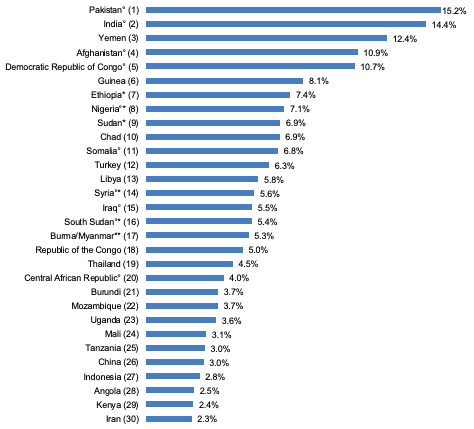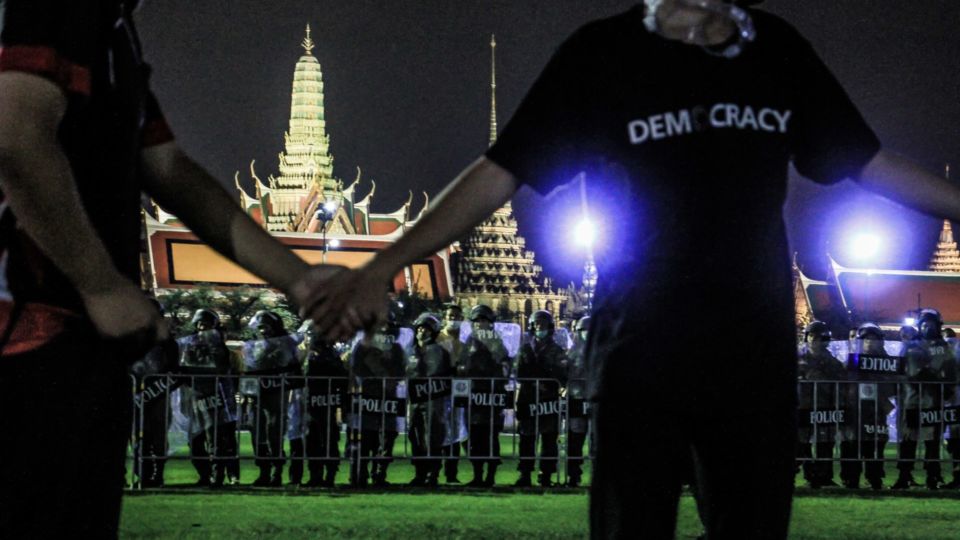Thailand is now at high risk of witnessing mass killings, according to conflict monitors.
The kingdom moved up 23 spots to 19th of 162 countries studied for the likelihood that a massacre or genocide could occur by a U.S. group called the Early Warning Project.
“Our statistical model estimates that there is a 4.5%, or approximately 1 in 22, chance of a new mass killing beginning in Thailand in 2021 or 2022,” this week’s report read.
The project cited reduced freedom, a history of mass killing, and the presence of armed conflict, such as that between state security forces and southern insurgents, as major factors behind the huge shift. It also references the emergence of the most recent pro-democracy movement, whose historical predecessors have been victimized by state violence.
“In October 2020, the government instituted a ‘severe’ state of emergency in response to large-scale (mostly) student-led protests,” it reads. “Protesters were calling for an end to harassment of activists, abolition of Thailand’s parliament, constitutional reform, and reform of the powerful monarchy.”
Famous as a tourist haven worldwide, Thailand has a dark history of abduction, torture and killing of dissidents who challenge the political and royal establishment. Wanchalerm Satsaksit was one of a number of activists in exile who’ve gone missing – and is presumed dead – since he was abducted last year from his apartment in Phnom Penh. Before he vanished, he had posted a video clip criticizing Thai Prime Minister Prayuth Chan-ocha.
The Early Warning Project is operated by the U.S. Holocaust Museum. It said that, on average, one or two countries experience episodes of mass killing annually. It defines mass killings as 1,000 or more civilians deliberately killed within a year’s time due to their membership in a particular group.
“Virtually all cases of genocide include mass killings that meet this definition,” it said.
Thailand has a bloody history of quashing dissent with state-sanctioned violence. Popular movements calling for democracy were brutally suppressed in the ‘70s, ‘90s, and most recently in 2010. In 1976, pro-democracy campaigners and students were murdered in a state-backed massacre on the campus of Thammasat University.
Two spots higher in the risk assessment is Myanmar, where widespread unrest and armed resistance to military rule have fueled fears of civil war. The ten highest-risk countries were Pakistan, India, Yemen, Afghanistan, Congo, Guinea, Ethiopia, Nigeria, Sudan, and Chad.

The Early Warning Project has produced a global risk assessment every year since 2014. Those behind the project said they use quantitative and qualitative methods to “spotlight” countries where mass atrocities are at risk of occuring. They use publicly available data and forecasting methods to improve their early warning system.While mass killings are already happening and still going on in places ranging from South Sudan to Myanmar, the Early Warning Project said its other goal is to draw attention to countries at risk of new episodes such as Thailand.




